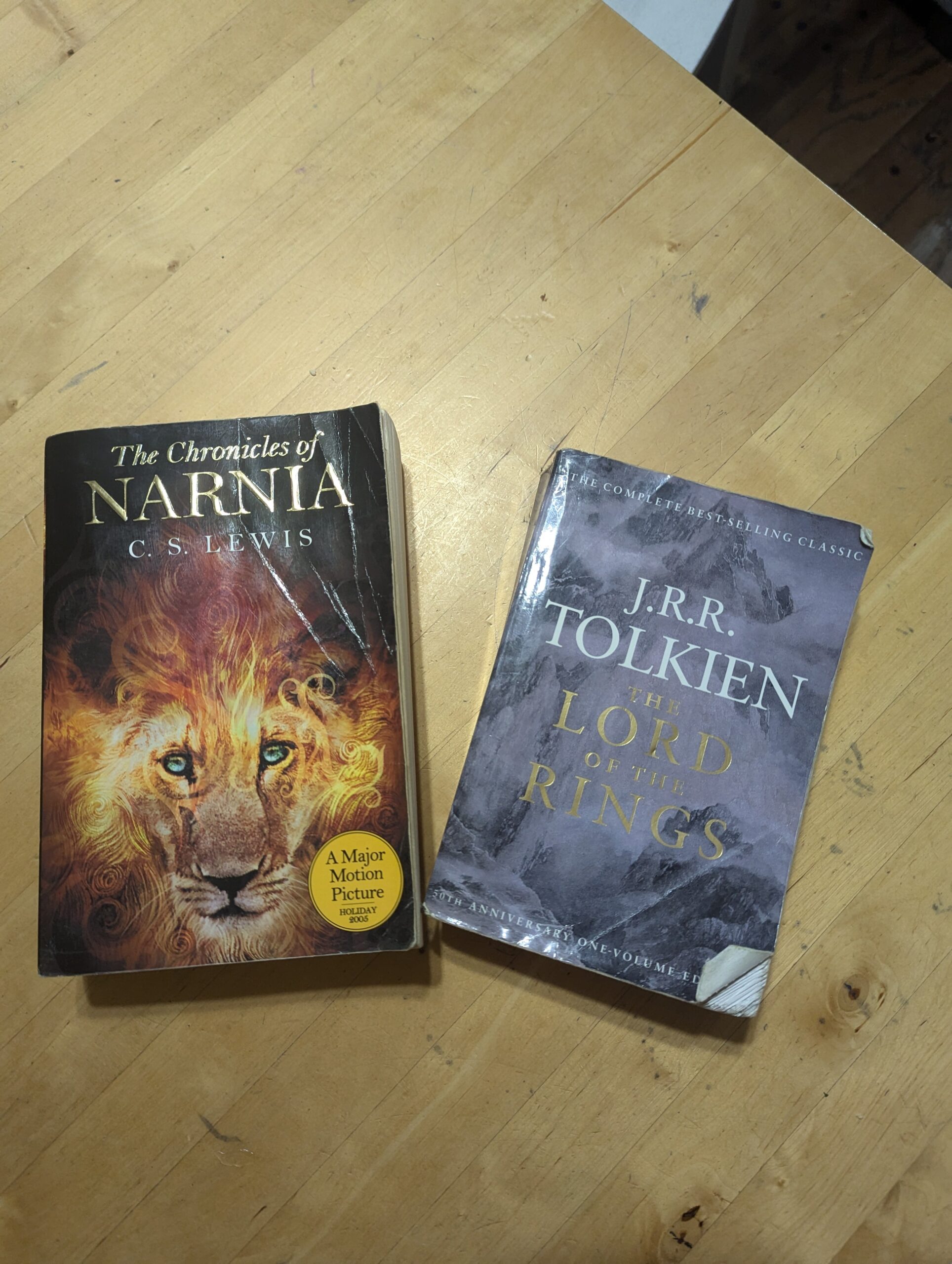Growing up in mostly Christian circles and with a literary-minded family, the question that was often thrown about: Are you a “Chronicles of Narnia” or “Lord of the Rings” kid? Such a question has little bearing on the daily life of a person, but it is a fun question to ask and even more fun to defend your chosen camp.
I have been a Narnia girl for as long as I can remember. I read the whole series at a ridiculously young age, not understanding a bit of it until later, though fully enjoying the act of reading. The BBC adaptations and Disney films also took up a great amount of space in my childhood, though I’ve always preferred the books.
While there is no question that J.R.R. Tolkien was a brilliant writer and academic, there is room for wondering if his books are really, truly meant for children. I did not read the LOTR series until I was well into high school and even then gave up halfway through from sheer exhaustion. This is not to say that there are not some children whose minds are developed enough for an appreciation of such literary prowess, yet it must be acknowledged that not all children are capable of sitting through several pages dedicated to describing rocks and trees without some boredom seeping in.
Narnia captures the attention of young minds and delights the childhood fancy with talking animals, Father Christmas, magical tales, daring adventures and simple yet pleasant prose. C.S. Lewis is more outright in his religious allegory, which lets children learn from it easier. There are less high-fantasy elements in Narnia; not as much world-building is necessary to be detailed out in the pages because the magical systems seem to come naturally. It is not lazy writing, it is a reliance on the imagination, something which children have in abundance.
This is not to say that children are the only ones who can enjoy “The Chronicles of Narnia.” As previously stated, I’ve enjoyed the books since I was old enough to prop a book up in my lap and scan through its contents with even a mite of understanding. I re-read the series sporadically, any time I need encouragement or the comfort of a familiar, good story. I’m writing my senior literature thesis on Susan Pevensie, because there is a richness to her character and story that warrants exploration. Lewis created characters that live alongside the people who read about them, for years following that first introduction.
Perhaps Tolkien possessed the same power of interesting characters and fantasy intrigue, but his writing is almost too steeped in academic tradition and learned ways. He is a daunting fellow and his books are almost even more so. This is not to say that the labels of stuffy or impossible are entirely fair to Tolkien; certainly anyone can read whatever they like if they put their mind to it. And one does not need to understand ancient Anglo-Saxon lore to enjoy LOTR. But Narnia is simply more approachable while still being beautifully crafted and carefully thought out. It is not dumb in its simplicity, it is elegant and true. Therefore it is easier to love and it is easier to let one’s soul cling to the stories for a lifetime.
Lord of the Rings–
Now, to answer the question that everyone wonders (or ought to) at least once in their short lives: why is “The Lord of the Rings” the superior book series to “The Chronicles of Narnia?” Now, I might be slightly biased, as some of my most beloved childhood memories are my father reading
“The Hobbit” and “The Fellowship of the Ring” aloud to my sisters and I on cold winter evenings. However, allow me to present two major reasons, hopefully not as rooted in personal bias, for the supremacy of “The Lord of the Rings”:
First, consider the general prowess of Tolkein’s authorship, as presented by his utterly outstanding world building skills. The sheer breadth of detail involved in creating Middle Earth has forever left its mark on the world of novels and story-world building. Tolkein created languages, drew detailed maps, built backstories to explain the conflict of the novel, and managed to do this all without major contradictions or flaws in his storylines.
Second, Tolkein did all this both in lengthier works of literature, and in a way that reawakens the language of Medieval fantasy in a different way than Lewis. Tolkein invites his readers into an epic adventure, into growing in friendship with the characters and the story. His language throughout all of this hearkens back to Arthurian legends, to Beowulf, to so many of the classic stories. In this way, he re-enchants the Medieval world for the modern reader, as he builds us a bridge through his stories into the classic works of literature.
So, while Lewis and Tolkein are both phenomenal authors, consider this: Tolkein manages to build an even more complex story-world, explore similar themes in greater detail, and bridge the gap between our contemporary world and Medieval literature. This means that Tolkein’s readers are opened up to a whole new world of reading material, as well as a new view of their own world through the lens of Tolkein’s rather average, ordinary characters.

